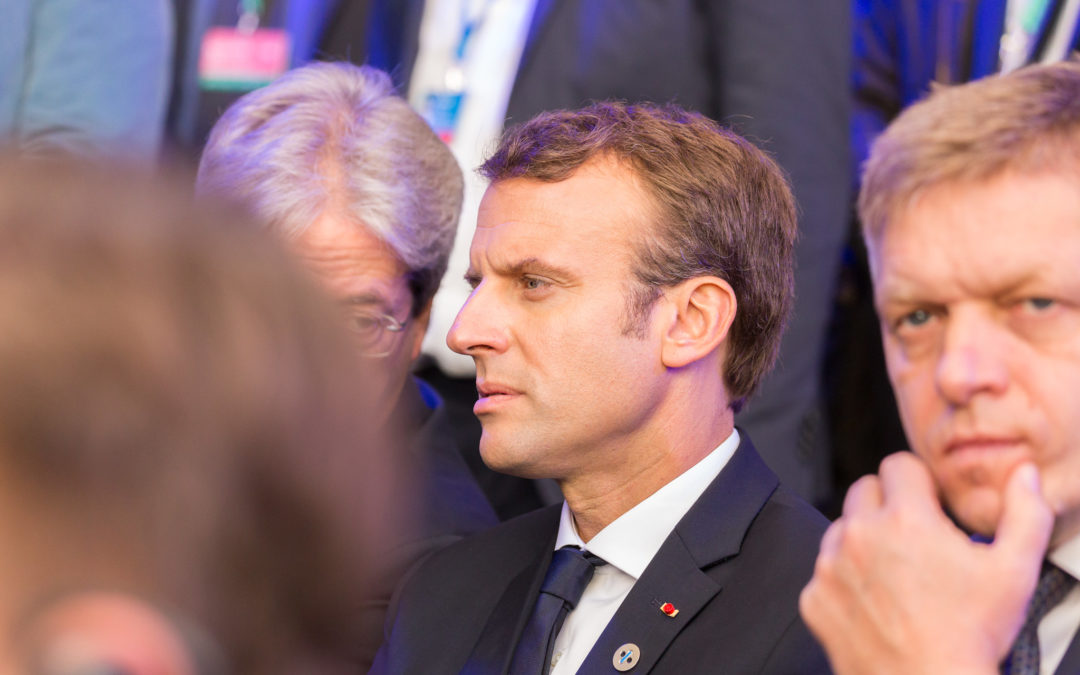French president Emmanuel Macron has warned that Poland faces isolation and a loss of EU funds over its refusal to sign up to a climate-neutrality plan that has been agreed by all other member states.
“If Poland does not confirm its participation, it will place itself outside European mechanisms, notably when it comes to financial solidarity,” warned Macron, quoted in the Financial Times.
His comments follow Thursday’s European Council summit, at which leaders agreed on a target to attain carbon neutrality by 2050. However, in an unusual move given the standard requirement of unanimity, Poland was exempted from the agreement.
The Polish government has declared the outcome a success, saying that it gives Poland, which remains far more dependent on coal than any other EU state, the option of reaching its climate goals more slowly.
EU countries by the sources of their power generation.
Poland is by far the most reliant on coal, which produces around 80% of its power.
Via the @guardian: https://t.co/iwV2tYwBpQ pic.twitter.com/3JY3xSGxNs
— Notes from Poland ?? (@notesfrompoland) May 28, 2019
However, there are doubts as to what Poland’s exemption will mean in practice. As the rest of the EU moves ahead with new emissions goals and mechanisms to implement them, Poland may be required to meet the goals anyway, commentators have noted. At best, it may lose out on EU funds as a result.
Poland’s government has already made clear that it wants “significantly larger” funding from the EU budget to help with its energy transition, and Brussels has promised a €100 billion “Just Transition Mechanism” (JTM) to help poorer member states.
But Poland’s refusal to sign up to the latest commitment, and its insistence that the JTM is paid in addition to normal cohesion funds in the next EU budget, will not have won it friends, reports the Financial Times, which quotes a senior EU diplomat saying that “the JTM is not an ATM”.
In his press conference on Friday, Macron noted that Poland had until June next year to confirm if it would commit to the objective of climate neutrality. If it did not, then EU solidarity mechanisms such as the JTM “would not apply” to it.
Poland’s “temporary exemption doesn’t slow down in any way the implementation of the Green Deal”, said Macron, quoted by Euractiv. He pointed out that decisions on climate policy can be made by a qualified majority of member states, meaning Poland has no veto.
Polish government spokesman Piotr Müller responded curtly. In an interview with broadcaster Polsat, he said: “I wouldn’t worry about what the president of France says. He says it often.”
As Müller’s words suggest, this is not the only recent exchange between France and Poland over this issue. In September, Macron criticised the Polish government for “blocking everything” when it comes to EU efforts to achieve carbon neutrality by 2050. He called on young people to “go to demonstrate in Poland and help me convince those I cannot convince myself”.
In response, Polish president Andrzej Duda called Macron “dishonest and impudent”, and suggested that “conciliatory solutions” were needed, rather than “antagonism and aggression”.
Other EU leaders have appeared more sympathetic to Poland. Speaking after Thursday’s council summit, German chancellor Angela Merkel praised Poland for making “giant steps” from “the most difficult starting position among all EU countries”.
“If you need to radically change this within 30 years then you have to do a lot more,” said Merkel, quoted by Politico Europe. “Thus I find it laudable that Poland says it wants climate neutrality, even though it says ‘we can’t commit to the implementation at this moment, we have to talk with our people and our unions’.”
New European Commission chief Ursula von der Leyen, quoted by the Financial Times, likewise said that Poland had “come a long way” given its “coal-dependent regions”. It is understandable that it “needs more time to go through the details”.
Main image credit: Arno Mikkor/EU2017EE/Flickr (under CC BY 2.0)

Daniel Tilles is editor-in-chief of Notes from Poland. He has written on Polish affairs for a wide range of publications, including Foreign Policy, POLITICO Europe, EUobserver and Dziennik Gazeta Prawna.




















